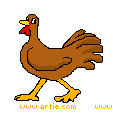October 9, 2011
How to Hook Agents–SCWC Shares Idea–II
This latest iteration of So. California Writers Conference again exceeded my expectations. It was run by knowledgeable people, taught by caring presenters and peopled with energetic writers. In short, it was three days of a positive, motivating
environment that rekindled my writing fires.
Let me reiterate something I said in my last post: I become more and more convinced that most agents and publishers miss the big point of why writers want to be published. It’s not to ‘hit it big’ although we’ll take that. It’s often to make a living doing what we love. We don’t need to get rich at it; we just need to get by.
Here are more of my take-aways:
- agents will not continue reading if they find typos. Edit your work
- agents read the first sentence. If they like it, they read the first paragraph. If they like it they read the first page. And so on. Place your hook early.
- narrative hook must answer as many of who-what-when-where in one sentence as possible
- hook the reader by posing a question they want the answer to
- create a compelling event the reader wants to find out about
- create an interesting character the reader wants to get to know better
- present your ideas in an unusual fashion so readers will want to see more about how you think
- narrative thrust makes readers want to turn the page
- risk points are where you risk losing your reader. The first one is also the hook
Since I’ve finished my book and am working on sending it to agents, I was particularly interested in this process. Here are some hints on that:
- query must provide compelling prose that makes the agent want to read more
- get your characters in early in the pitch
- get the hook in early
- don’t tell the agent what to feel about your writing
- don’t say your story is humorous if you don’t make the agent laugh in the query
- make it clear who the main character is so the agent can follow
- ‘people problems’ are always interesting
- a query isn’t a plot synopsis; it’s a sales pitch with a one-sentence plot summary
- don’t tell; show–as you would in your novel
- three-paragraph query: plot, about you; how it relates to the agent
- don’t pub your picture on your self-pub book because you aren’t well-known so it won’t sell books
- Book marks are the #1 marketing tool.
Finally, here are a few off-the-cuff observations:
- I love my iPad. It was easy to use, light-weight, and the battery lasted an entire day of note-taking. Plus, I could take notes on the ‘notes’ app, toggle over to a drawing app in a second and replicate the drawing done by the presenter. Try doing that on a laptop!
- Interestingly, most people took hand-written notes (unlike a tech conference I attended in June). I was one of the few with an iPad or computer. This might be the foundation for opinions that writers didn’t need to be digital yet. It’s human nature to go with our comfort level
- Google docs doesn’t work when the conference venue doesn’t have free wifi.
- Publishers aren’t interested in mid-list writers
- I am really tired of hearing how busy and tired agents are. Attention: Writers work day jobs–then go home and raise a family and write a novel. That’s busy.
Jacqui Murray is the editor of a technology curriculum for K-fifth grade and creator of two technology training books for middle school. She is the author of Building a Midshipman, the story of her daughter’s journey from high school to United States Naval Academy midshipman. She is webmaster for five blogs, an Amazon Vine Voice book reviewer, a columnist for Examiner.com, Editorial Review Board member for Journal for Computing Teachers, IMS tech expert, and a weekly contributor to Write Anything and Technology in Education. Currently, she’s working on a techno-thriller that should be ready this summer. Contact Jacqui at her writing office or her tech lab, Ask a Tech Teacher.







